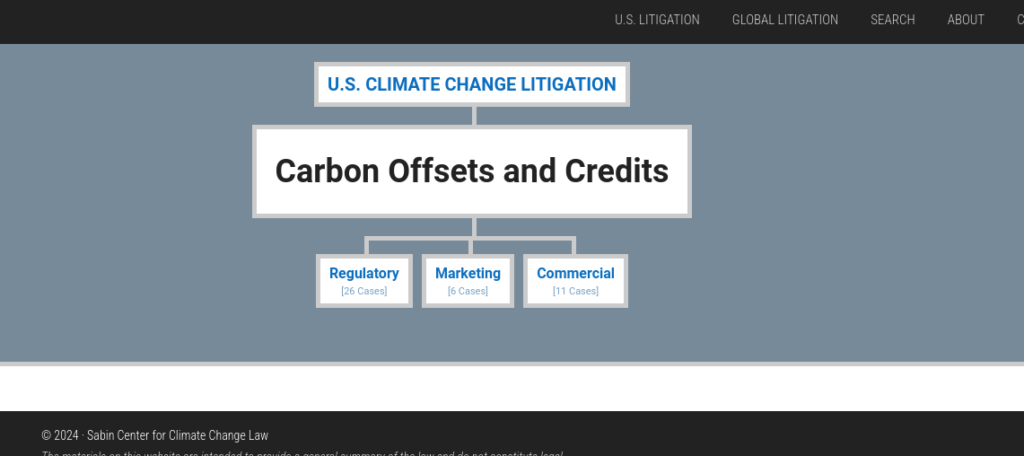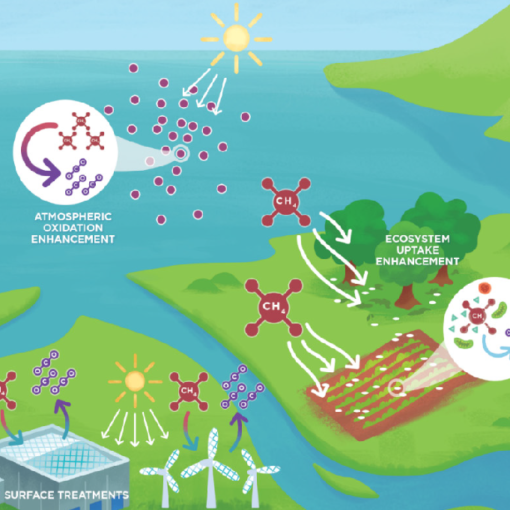As markets for both voluntary and mandatory carbon offsets and credits have grown in recent years, the number of lawsuits involving offsets or credits also has increased. For example, American consumers have recently sued multiple companies, including Delta and Danone Waters (which sells Evian bottled water), for making potentially misleading claims of being “carbon neutral.” Typically, companies make such claims based on their purchase of carbon offsets that, in principle, reduce or avoid carbon emissions or remove carbon from the atmosphere in an amount equal to emissions that the company produces. In practice, the carbon offset industry is often plagued by spurious accounting, limited accountability, and implausible promises of significant carbon sequestration that have not translated into reality.
As an increasing number of parties litigate “climate washing” claims related to the use of carbon offsets, as well as other issues related to the creation, sale, marketing, and use of offsets and carbon credits, the Sabin Center has decided to expand our U.S. Climate Litigation Database to include a carbon offsets and credits case category. We hope the new category will provide a resource to attorneys working on matters related to carbon offsets, as well as to others interested in how litigants and courts are addressing issues raised by the voluntary and mandatory use of offsets and credits. (The Global Climate Litigation Database will be updated with a new case category in the near future.)
Methodology
Potential cases for inclusion were identified by searching certain key phrases in the state and federal case databases of LexisNexis and Westlaw. These phrases included “carbon offset,” “carbon credit,” “carbon neutral,” and “cap-and-trade.” In keeping with the Sabin Center’s criteria for inclusion in the database, each case was reviewed to determine whether carbon offsets or credits were a material issue of fact or law.
Cases that met the criteria were then sorted into three subcategories: regulatory, commercial, and marketing. Regulatory cases most often involve a dispute between an environmental organization and a state or federal agency regarding the use of carbon offsets. A large proportion of these cases include claims made under the California Environmental Quality Act, which requires state and local agencies to publicly disclose environmental impacts of proposed projects. Often, the plaintiff in these cases has challenged an agency’s reliance on carbon offsets to mitigate the project’s carbon emissions. Other regulatory cases involved issues related to the use of offsets and credits in cap–and–trade systems such as California’s system. Cap-and-trade systems typically allow firms to purchase offsets to ensure they do not produce emissions greater than their allotment.
Commercial cases, the second subcategory, usually involve a dispute between a firm seeking to buy or produce carbon offsets, and a firm offering offsets or offset consulting services. In most of these cases, parties have brought either breach of contract, trade secret, or fraud claims, most of which implicate carbon offsets only as a matter of fact. These cases are included because they provide highly relevant information about the use of litigation to influence and inform the functioning of carbon offset markets.
Finally, a number of cases have involved deceptive marketing claims against companies purchasing carbon offsets and claiming that they were “carbon-neutral” (i.e., “climate washing” cases). These cases are expected to grow in number in the coming years.
The initial round of case identification identified 18 cases not previously included in the U.S. Climate Litigation Database, as well as 25 that were already included in other categories. The Sabin Center will continue to maintain this new case category in the U.S. Climate Litigation Database, and will soon add a similar new case category to the Global Climate Litigation Database.

Keir F Adamson
Keir Adamson is a 2L at Columbia Law School and a Legal Intern at the Sabin Center. He is interested in environmental and energy law, with a focus on environmental justice.





